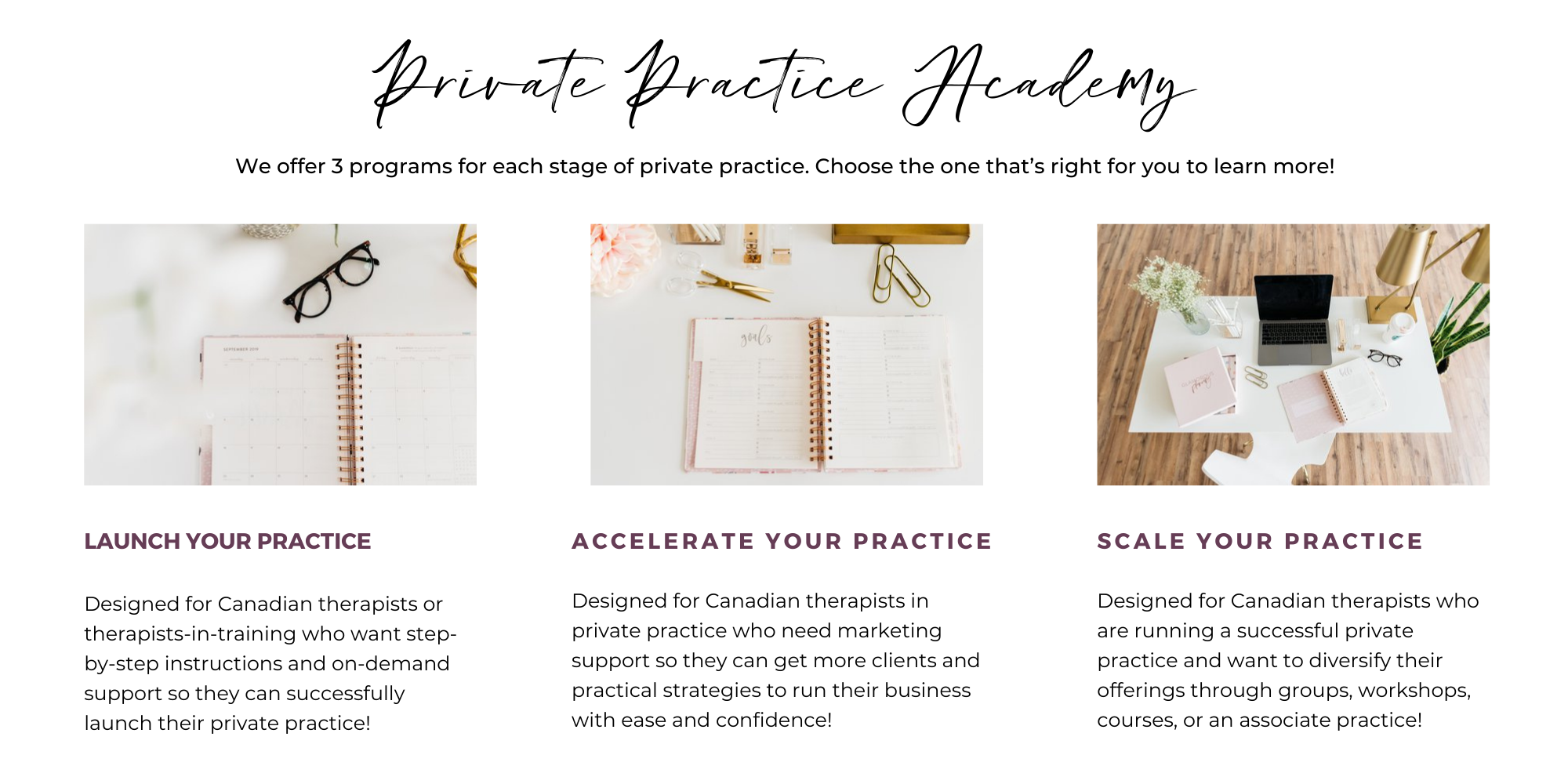Tips For Setting Up A Home Office For Your Private Practice
Virtual and telephone therapy is becoming the norm in the mental health industry. Aside from these changes coming as a result of increased safety precautions in the light of COVID-19, the benefits of virtual or phone sessions also include being more accessible for your clients and potentially more cost-effective for your business.
While working from home definitely has an appeal, there are some important things to consider as an entrepreneur and mental health practitioner to ensure that you set yourself up for success.
Protecting Your Personal Time
When your home and work life reside in the same place, it can become difficult to maintain boundaries and protect your personal time. Having a set schedule for when you are in session with clients and when you work on the administrative side of your practice is an important component of running a successful home-based practice.
It can be easy to stay logged into your computer to check one last task off of your to-do list but this can be a hard habit to break. While you have a responsibility to give your clients the best care and support you can, you also have a responsibility to take care of yourself to ensure you are showing up as the best version of yourself in your practice.
If possible, ensure that you conduct your session and administrative work in a specific area of your home. Not only will this look more professional on camera while in session with clients but it will also allow you to step away from your workspace for breaks or at the end of your workday to decompress (and avoid burnout).
If your kitchen table is doubling as your office, be sure to include a wrap-up routine into your daily schedule. This might look like packing up your computer, client files, etc. to signal the end of your workday and help maintain the boundaries of work and personal time. It is important to release the feelings of obligation to work just because you are always ‘at’ your office (by being at home).
Upholding Privacy and Confidentiality
The privacy and confidentiality of your clients is of the utmost importance when running a private practice. This can be trickier to navigate if your sessions are occurring in your home. If you have other people in your home, it’s important to think about how you can ensure you protect the privacy of your clients. Holding your sessions in a designated area of your home, using a noise-reducing headset working with your family to ensure they understand the boundaries and requirements of supporting you while offering services out of your home are all great places to start.
Reliable Equipment and Services
Another important consideration for running successful online or phone-based counselling sessions is to ensure that the equipment, services and utilities required are reliable.
This means that a stable (and secure) internet connection or clear phone line is high on the list of must-haves. Keeping up with regular software updates on your computer is also a necessity as you require it to run your practice and hold your sessions. If you are conducting video sessions then you may also want to invest in a decent webcam and microphone or headset.
Finally, think about how you will respond to extenuating circumstances. What happens if your power goes out during the middle of a client session? Do you have a contingency plan, and how will you communicate this to your client?
Managing Interruptions
It’s important to ensure that you are able to manage interruptions during your client sessions. This can be as simple as communicating your schedule to the other members of your household or setting your office house to be conducive to your family’s daily routine.
If you have small children at home, you may need to consider having a caregiver lined up for the instances in which you are in session with a client to ensure that you can remain focused on your work.
Another interruption to consider is deliveries (especially if you have protective dogs). A knock at the door or a ringing doorbell - as well as dogs barking - can be a distraction that can impact your session and potentially make your client feel on edge. Be sure to manage these distractions as best as possible. Having your deliveries sent to a P.O. Box might suffice.
If you’re looking for support in managing the balance between your practice and personal life, or if you need guidance on how to run a successful web-based practice, learn about BYPP’s programs currently available here.

